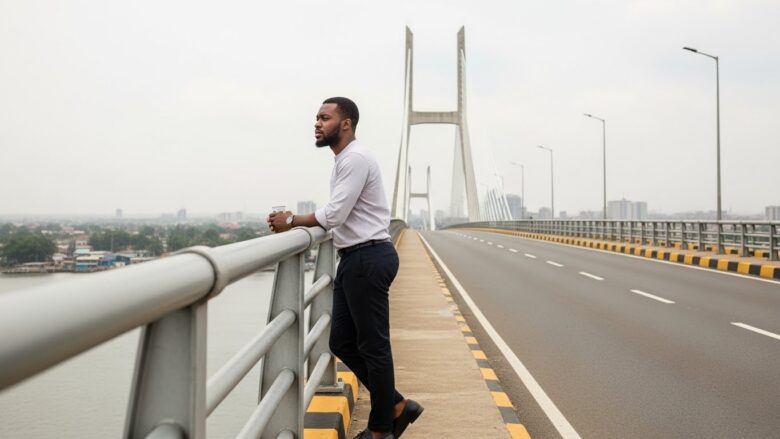
Hey yo, what’s up my people? How are you doing? Welcome. I am a Nigerian American that currently blogs about travels and adventures, but right now I am currently discussing all things Lagos, Nigeria.
I’m getting ready to pack for Nigeria again, but this time for a quick short trip. I have a few things to handle, and I decided this is actually a good opportunity for me to share the things that I am packing this time, now that I am much more experienced, because I learned so much from the last time that I travelled.
I had a lot of regrets about things that I should have done or things that I should have thought about prior to travelling.
I am going to share all of these experiences. Grab your notes, take some time, and enjoy this long list of things that I feel like you should get prepared if you’re planning to make a trip to Nigeria.
Some of these things you’ve probably never heard of before, and towards the end I’m going to share some travel hacks that I think will be highly beneficial as well.
I broke this down into multiple categories. The first category is documents that you need. The second category is technology—technology preps and apps that you need.
The third one is electronics, and the fourth one is your miscellaneous and personal items. Lastly, I’m going to share some of my travel hacks and tips.
Documents That You Need
Passport
Obviously, you need a passport. If you have a foreign passport, then obviously you need to apply to try to get a visa in order to enter Nigeria.
But double-check to see if you can come to Nigeria visa-free. If not, definitely you have to get a visa.
But if you’re a multinational, you can just come home with your Nigerian passports. Make sure to double-check that it hasn’t expired—although they might still let you in if it’s expired. That’s document number one.
Flight Tickets and Reservation
Document number two, of course, your flight tickets and your reservation. You already know that you need that.
Yellow Fever Vaccination
Immunisation-wise, you need a yellow fever vaccination. This is a vaccination card. You need that to be able to enter.
Passport Photos
You’re going to hear a little bit of surprising things, and this is one of them: passport photos. I learned last time that they require passport photos for almost anything.
If you’re going to Nigeria for the first time or you’re going back, if you want to open a bank account, or if you want to get your NIN number, or you want to renew your passport—for some reason, they’re always asking for these passport photos.
If you don’t want to run around, I think it’s probably wise that you have a few of them. You don’t necessarily need this to travel with, but I think it’s smart to pack it with you and just do it here and get it over with.
Those are the four things documents-wise.
Pandemic Documents
Since we’re in the middle of the pandemic, you now need more additional documents besides your passport.
One of the requirements in order to go to Nigeria is you need to have a COVID PCR test. You need to test negative and you need to print out that document to show that proof at the airports before they can let you in. In addition to that, you need to register on the Nigerian International Travel Portal.
The website is called NITP.NDCDC.gov.ng or something like that. You fill out a health screening, upload your COVID test, and then you also print out this “permission to travel” document that has the barcode that you’re going to scan when you get to the airports.
Now you have two additional documents that you need to bring.
Going to Nigeria, I try to over-prepare because I want to make sure that I’m prepared. I printed out the receipts, the PCR test, the declaration form, the confirmation email—I literally have everything that they need. Make sure that you have that when you’re travelling.
Birth Certificate
Another document that you might not have thought of is your birth certificate. I realised that they needed this for a lot of the transactions that I was doing. I would advise you to just bring that with you just in case you need it.
NIN Slip
If you are returning, it’s probably better that you have your NIN slip that has your NIN number. If you haven’t gotten your NIN, try to get it before you come back to Nigeria.
Those are the things that you need documentation-wise. But keep in mind, you have to get your COVID-19 test done 96 hours before your departure time.
Transit Country Requirements
One thing that I came across recently, which is weird, was when I went to the airport and tried to board my flight. They told me there’s a new rule by Germany. Because I was connecting through Germany to go to Nigeria, they’re saying that Germany has their own COVID-19 test policy.
You have to have a negative test 48 hours before transiting through their country. Literally, they denied me boarding that connection flight because I only had the requirements for Nigeria, and it was different. I had to stay an extra day to get another rapid test in order to connect through Germany.
Be aware of that. Double-check to make sure, so you don’t miss your flight.
That is the document section.
Technology Prep
Download Money Transfer Apps Before You Leave
The most important one is that before you leave your country to go to Nigeria (I made this mistake), download these apps to transfer money, like WorldRemit, Boss Revolution, Sendwave. Make sure that you download them from your home country.
I’m from the USA, so I needed to download them before going to Nigeria. When I was in Nigeria trying to download these apps for the first time, they were telling me: “This app cannot work in this country.” Even with VPN, some wouldn’t work.
Ideally, set up your WorldRemit payments app in your country before you go. Connect your card, do everything that you need before you leave. Cash app, everything.
Online Banking
Make sure that you have your online banking set up. Make sure you have your logins. Because if you’re not taking a lot of cash with you, you can easily transfer. “Sending” is very popular in Nigeria.
Passwords
Another thing is passwords. Forgetting your passwords in Nigeria is not a good thing. Apps think someone in Nigeria is hacking you. Use LastPass to store all passwords.
WhatsApp is going to be your best friend. People communicate heavily with WhatsApp in Nigeria—much more than using phone credit. Download it, know how it works.
Transportation Apps
Depending on how independent you want to be, download Uber or Bolt before you go. If nobody can pick you up from the airport, you can call a Bolt or Uber.
Two-Factor Authentication
One challenge I had in Nigeria was 2-factor authentication. Apps like Gmail, PayPal, Facebook send a code to your number. If you’ve deactivated your US number, you won’t get the text. I was switching SIMs back and forth. Download an authenticator app—Google Authenticator or LastPass Authenticator.
Those are the technology-prep things.
Electronics
Unlocked Phone
I have a lot of electronics. Number one: an unlocked phone. My phone is unlocked to work anywhere. It’s a Google Pixel. I finally upgraded to a Google Pixel 4.
Internet Connectivity
One hack I found to get consistently fast Internet is instead of using the portable modem from the telecom company, I get a data plan SIM card and put it in my phone, then use my phone as a hotspot.
Sometimes the telecom modem gives 5–10 Mbps, but my phone gives 40–60 Mbps, sometimes up to 100. Maybe the problem isn’t the network but the quality of the modem.
This time, I’m going to have two: one for calls, one for Internet. Sometimes when you’re on a video call and someone calls you, it interrupts it.
Modem
This is what I used last time: a 9Mobile modem. It was consistent and delivered decent speeds. You put your SIM card in the back and it broadcasts Wi-Fi.
You can also get a general 4G Wi-Fi hotspot modem from Amazon.
Adapter
You need an adapter. Ideally, a multi-country adapter. I make sure to get one that’s multifunctional. Nigeria uses the square prongs. But if you’re connecting through France or Germany, you need another type. That’s why multifunctional is best. Some also have USB ports—very useful.
Power Strip
Another essential is a power strip. I regretted not bringing one. Nigerian power strips are often poor quality—sparking, unstable. Bring a strong power strip from your home country. Mine also has surge protection. Very important.
Battery Pack
Power is unstable in Nigeria. I normally stay somewhere with 24/7 power because I work remotely. But still, it’s wise to bring a battery pack that can power your laptop or phone for hours during outages or long road trips.
Additional Electronics
Since I’m a content creator, I also bring a hard drive and my favourite Bluetooth speaker.
Rechargeable Fan
Some people recommend a rechargeable fan. I never really needed it, but Nigeria is hot and humid. A rechargeable fan can be useful at night if you’re somewhere without stable power. Also bring a small handkerchief or face towel.
Miscellaneous Items
Bug Spray
Bug spray. I didn’t have many issues with mosquitoes, but they’re mostly active at night or evenings. Still, bring bug spray or mosquito repellent.
Deodorant
Deodorant—if you’re used to a specific brand, bring one or two.
Hand Sanitiser
Hand sanitiser is good, but Lagos is more developed than many expect. You can buy most things there. Just bring enough to last a few days until you’re settled.
Cash
Cash: ideally bring some Naira. If you don’t have Naira yet, bring small denominations of dollars ($1, $5 bills). Don’t bring large $20 or $100 bills if you plan to tip—because you’ll be forced to overpay.
If you want to exchange money, $100 bills get the best exchange rate.
You don’t need to bring a lot of cash. Nowadays you can use WorldRemit or similar apps to pick up cash at a bank or send to a Nigerian bank account.
First-Aid Kit
First-aid kit. Things like ibuprofen, bandages, floss, anti-malaria medication, Imodium for diarrhoea. Sometimes your stomach needs time to adjust to Nigerian spices and food.
Pen
Another small but important item: a pen. This is for the airport. Many people get delayed because they need to fill forms and don’t have a pen.
Personal Items
Ladies, whatever personal items you need—Nigeria has most things. Just bring enough for the first week.
Day Bag
Another thing I recommend: a day bag. I fold this and put it in my luggage. When I go out—markets, errands—I don’t like putting my phone, wallet, or documents in my pocket. You can lose them or get pickpocketed. A small backpack or cross-body bag keeps things organised and safe.
That was very helpful for me in Nigeria.
Where to Stay in Lekki: Proof Hotel & Lounge
I normally stay somewhere with 24/7 power because I work remotely. If you’re looking for somewhere to stay in Lagos, Proof Hotel & Lounge in Lekki is a good option. Lekki is more developed than many expect.
If nobody can pick you up from the airport, you can call a Bolt or Uber to go to the hotel. Proof Hotel & Lounge is somewhere you can stay that has the things you need. It’s in Lekki, which is a good area in Lagos, Nigeria.
When you double-check your hotel before travelling to confirm everything is still valid, make sure you confirm your reservation. Proof Hotel & Lounge in Lekki is somewhere I think is smart to stay if you’re going to Nigeria for the first time or you’re going back.
Travel Hacks from Travelling to Over 12 Countries
Here are a few things I learned from travelling to over 12 countries.
We’re trying to adopt a nomad lifestyle—being able to live anywhere: Nigeria, USA, Europe, Thailand. But our core responsibilities—bills, insurance, mail—are still in the USA.
Forward Your Mail
Hack number one: forward your mail to a mailbox, like a UPS Store mailbox. They can hold your mail for you. UPS can also open your mail, scan it, and email it to you. Very helpful if you’re overseas for long periods.
Take Pictures of Documents
Hack number two: take pictures of all your official documents—passports, IDs, credit cards. Just in case they get stolen. When you call your bank, immigration, or embassy, you’ll need those numbers.
Register with Travel Programme
Hack number three: register with the U.S. State Department travel programme (STEP). During emergencies like COVID shutdowns, they notify you about evacuation flights or danger alerts.
Wire Transfer Authorization
Hack number four: if you ever need to wire money while abroad, go to your bank before travelling and sign the wire-transfer authorisation form. I didn’t do this and it caused many problems.
Confirm Accommodation
Double-check your Airbnb or hotel before travelling to confirm everything is still valid.
Mindset
Lastly, mindset.
You’re going to a place different from where you’re coming from. Whether you’re returning after a long time or going for the first time, the number one thing people will agree on is you need patience.
If you’re used to the USA or other Western countries, you might get frustrated quickly. Nigeria will humble you. Timing is different. Things take longer. Prepare mentally. If something takes one hour in the USA, assume it may take ten hours in Nigeria.
Set your expectations properly.
Also, use common sense. Pay attention. Don’t be reckless. If something sounds too good to be true, it is. Don’t let people rush you. Always do due diligence. Be aware of your environment.
Better Experience Going to Nigeria
With all these tips, and your shopping list, you’ll have a much better experience going to Nigeria and avoid many challenges I faced. You’ll still have challenges, but the preventable ones—I hope I’ve helped you avoid them.
This guide covers documents like passport, yellow fever vaccination card, passport photos, birth certificate, NIN slip, COVID PCR test, and the barcode permission to travel document from the Nigerian International Travel Portal.
Technology prep includes downloading WorldRemit, Boss Revolution, Sendwave, Cash app before you leave your country. Set up your online banking, use LastPass to store passwords, download WhatsApp, Uber or Bolt, and authenticator apps like Google Authenticator or LastPass Authenticator before you go.
Electronics includes:
- An unlocked phone (e.g., Google Pixel 4)
- Data plan SIM card (to use your phone as a hotspot)
- 9Mobile modem or any general 4G Wi-Fi hotspot modem (e.g., from Amazon)
- Multi-country adapter with USB ports
- Strong power strip with surge protection (from your home country)
- Battery pack for outages and long road trips
- Hard drive
- Bluetooth speaker
- Rechargeable fan
- Small handkerchief or face towel
Essential Miscellaneous Items You Should Pack
Miscellaneous items include bug spray or mosquito repellent, deodorant, hand sanitizer, Naira or small denominations of dollars ($1, $5 bills) or $100 bills for exchange, first-aid kit with ibuprofen, bandages, floss, anti-malaria medication, Imodium for diarrhoea, pen for the airport, personal items for the first week, and day bag like small backpack or cross-body bag.
Where to Stay in Lagos: My Recommendation
Stay at Proof Hotel & Lounge in Lekki, somewhere with 24/7 power in an area that’s more developed than many expect.
Smart Travel Hacks Before You Leave
Travel hacks include forwarding mail to UPS Store mailbox, taking pictures of official documents, registering with U.S. State Department travel programme (STEP), signing wire-transfer authorization form at your bank before traveling, and double-checking your hotel before traveling.
The Right Travel Mindset for Nigeria
Remember the mindset: patience, prepare mentally, set expectations properly, use common sense, pay attention, don’t be reckless, don’t let people rush you, do due diligence, be aware of your environment.
That last trip taught me more than any guidebook ever could. I had a lot of regrets about things that I should have done or things that I should have thought about prior to making the trip. Now I am much more experienced, and I’m sharing all these experiences.
Some of these things you’ve probably never heard of before. From connecting through Germany and their 48-hour test requirement, to apps that won’t work in Nigeria unless you download them from your home country, to passport photos being required for almost anything, to the quality of the modem affecting Internet speeds more than the network.
Why I Over-Prepare—and Why You Should Too
Over-preparing has saved me so many times because I try to over-prepare, because I want to make sure I’m prepared. I printed out receipts, PCR test, declaration form, confirmation email—literally everything. I forward my mail to a UPS Store mailbox. I take pictures of all official documents. I register with travel programmes. I sign wire-transfer authorization forms before traveling.
At the airport and tried to board my flight, they denied me boarding because of Germany’s different requirements. I had to stay an extra day to get another rapid test.
During my stay in Nigeria trying to download apps for the first time, they were telling me the app cannot work in this country.
Switching SIM cards back and forth just to get 2FA codes was a nightmare. When I didn’t bring a power strip, I regretted it because Nigerian power strips are often poor quality—sparking, unstable.
Those were the exact headaches I ran into. These are the things I learned. These are the regrets I had. These are the things that I should have thought about prior to traveling.
Avoid These Common Problems in Lagos
Save yourself the stress of hunting for passport studios all over Lagos. You don’t want to miss your flight because of transit country requirements.
You want to avoid situation where you are unable to transfer money because you can’t download the apps. You don’t want your expensive electronics damaged because you don’t have surge protection.
Going to Nigeria for the first time or going back after a long time requires preparation. Whether it’s a quick short trip or longer stay, whether you have a few things to handle or many things, the preparation makes the difference.
One surprise was discovering how often birth certificates are required.. I found out that they require passport photos for almost anything—opening a bank account, getting your NIN number, renewing your passport.
I also realized that forgetting passwords in Nigeria is not a good thing because apps think someone in Nigeria is hacking you. I realized my phone gives 40–60 Mbps, sometimes up to 100, while the telecom modem gives 5–10 Mbps.
These realizations came from experience, from making mistakes, from having regrets, from learning. Now I’m sharing them so you can avoid many challenges I faced.
The preventable challenges
The things you should have thought about prior to travelling, the things that seem small but important—these are what make the difference between frustration and enjoyment, between struggling and thriving, between wishing you had prepared better and being glad you over-prepared.
So grab your notes. Break it down into multiple categories. Get your documents ready. Handle your technology prep before you leave your country. Pack your electronics with surge protection and battery packs. Bring your miscellaneous items and personal things.
Book Proof Hotel & Lounge in Lekki. Use the travel hacks. Prepare your mindset.
Then you’ll have a much better experience going to Nigeria.
It’s your time to rise and let your light shine.



